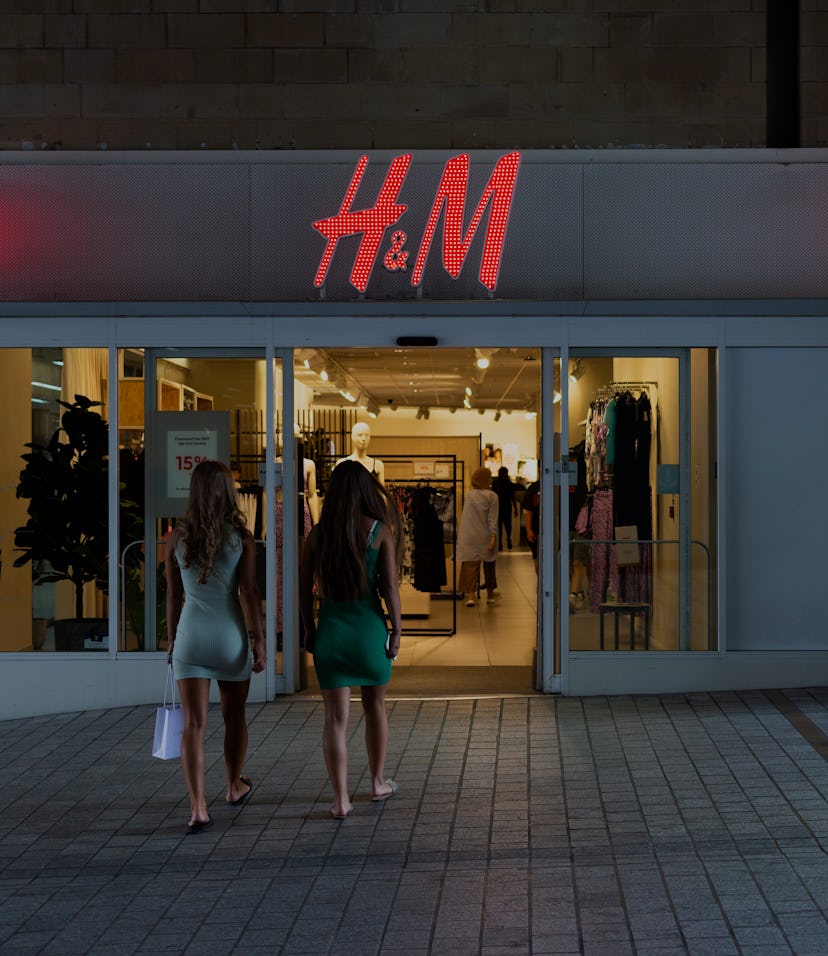Style
H&M’s sustainability marketing is ‘misleading’ and ‘falsified,’ lawsuit claims
The brand’s Sustainability Profile scorecards are just one alleged offense.

A new lawsuit alleges H&M is labeling its products as environmentally friendly though they are anything but. The fast fashion brand is being sued for its “misleading” sustainability marketing, The Fashion Law reports, with plaintiff Chelsea Commodore claiming H&M used falsified information on the labeling, packaging, and marketing materials for hundreds of its offerings in a practice known as greenwashing.
Many brands have started to incorporate words like “ethical,” “organic,” “conscious,” “transparent,” and “sustainability” in their marketing with hopes of attracting a new, more mindful consumer. But without producing real data behind these sustainability claims — or worse, using them while still cheaply and harmfully producing products — companies are “greenwashing” their products. Commodore alleges just that in her complaint, saying that “despite its position as a fast-fashion giant, H&M has created an extensive marketing scheme to ‘greenwash’ its products” in order to present them “as environmentally-friendly when they are not.”
Talking the talk — H&M’s Sustainability Profile scorecards — prominently displayed on green hang tags, in-store signage, and online marketing — are highlighted in the lawsuit as one of the main marketing offenders. TFL notes that on one scorecard, a dress was advertised as using 20-percent less water than comparable production methods. In actuality, an independent investigation by Quartz revealed that the dress was actually made with 20-percent more water. Similar false claims were found throughout H&M’s sustainably-marketed products.
With this data, Commodore accuses H&M of falsifying its sustainability efforts and misrepresenting its products as being better for the environment than average garments. She also says the inaccurate data isn’t limited to a few products — rather, she alleges H&M used misleading information “for each and every Sustainability Profile scorecard.” By doing so, Commodore says H&M is tricking its customers into paying a premium for products they think are environmentally friendly.
Don’t say it, just do it — H&M has already been called out for greenwashing: In 2020, the Norwegian Consumer Authority accused the brand of misleading shoppers with its Conscious collection (which still exists today). The line advertises more sustainable materials like organic cotton, recycled polyester, and Tencel — but it doesn’t explain how exactly these materials are better for the environment.
Commodore dives deeper into the Conscious Collection in her claim. According to TFL, she alleges that the collection includes “indisputably unsustainable materials like polyester,” which shed toxic microfibers, are not biodegrade, and are not recyclable. Such materials don’t align with H&M’s claims that “old clothes are simply turned into new garments, or that clothes will not end up in a landfill,” the lawsuit states.
To make matters worse, Commodore alleges the “conscious” products contain a higher percentage of synthetic materials than the brand’s main collection. She argues “it would take H&M more than a decade to recycle what it sells in a matter of days.”
The brand has yet to publicly comment on the lawsuit, although the case itself speaks to the broader problem of fashion waste. Between rampant greenwashing, unethical production, and overconsumption, the fashion industry’s lack of regulations — or blatant disregard for existing ones — seems to be an open secret. Commodore’s lawsuit is the first of many trying to keep brands accountable.